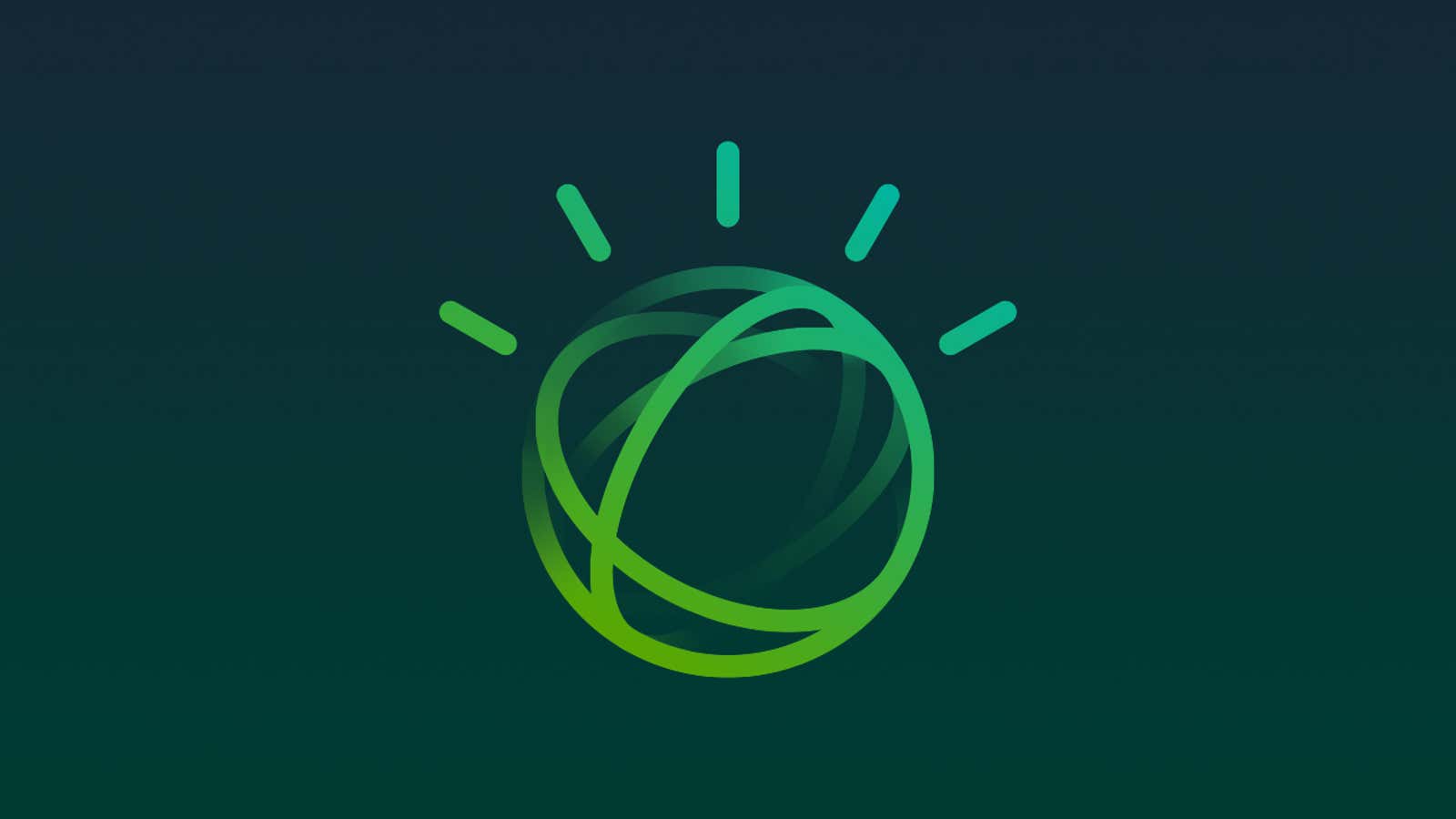Our world today is replete with data. But over 80% of this data is invisible to computers, locked away in unstructured repositories like textbooks, formulas, and human conversations. Capturing value from this information will entail fostering a new generation cognitively-inspired technologies to learn from and enrich human abilities.
According to IDC, by 2020 these systems will deliver nearly $47 billion in revenue. And while many have framed the emergence of cognitive systems within an anxious, man vs. machine narrative, the real technologies materializing in this space are creating a new “Cognitive Era”—one that augments, not replaces, human capabilities and values with computational heft.
Chief among these solutions is IBM Watson. Watson analyzes high volumes of data and processes information more like a human than a computer—by understanding natural language, generating hypotheses based on evidence, and learning as it goes.
Since its triumph on the television quiz show Jeopardy! IBM has advanced Watson’s capabilities and made it available via the cloud. Watson now powers new consumer and enterprise services in the health care, financial services, retail and education markets. In 2016, approximately 400 million people interacted with Watson while developing world-altering innovations. Below, we outline a few examples of what Watson is working on today.
Working toward well-being
Health and well-being are central to the human experience. As we live longer, cognitive technologies offer the opportunity to improve medical outcomes and create care solutions tailored to the needs of individuals and communities alike.
At Alder Hey Children’s Hospital, for example, young patients in Europe are getting more personalized care. Working with Watson, Alder Hey is developing the UK’s first cognitive children’s hospital. By analyzing feedback from patients and parents, the hospital can personalize patient care and help alleviate a child’s anxieties. In doing so, they’re improving patient experiences and providing comfort where it is needed most.
Medtronic Care is also looking to cognitive technology to improve care for millions with diabetes. More than 415 million people around the world suffer from diabetes. Working with Watson, Medtronic is creating an app for people with diabetes. When implemented it will use data from sensors, insulin pumps, wearables, and scientific studies to help predict potential hypoglycemia hours in advance.
Inspiring cutting-edge care
Beyond immediate patient care, cognitive systems are also advancing the field of medicine by providing research institutions with analytical tools capable of uncovering patterns and surfacing discoveries that would be difficult to reach through traditional research methods.
For example, to improve well-being, health-care innovation, and lives in Finland, Tekes has partnered with Watson Health to develop a comprehensive cognitive healthcare business while advancing R&D. Similarly, Mayo Clinic is using cognitive technologies to efficiently match patients to clinical trials. By working with Watson, Mayo Clinic can help offer its patients cutting-edge medical options while also working to advance the discovery of promising new forms of care.
Meaningful insights
From ensuring rigorous and thorough industrial inspections to crunching large volumes of data to understand financial risk, cognitive technology is at the forefront of efforts to create more secure, efficient organizations through meaningful insights. Working with Watson, for instance, the drones of Aerialtronics can inspect oil rigs, wind turbines, and cell towers, and predict repairs, helping make the world safer, cleaner, and more cost-efficient.
Such systems are also helping reinsurance and insurance companies price their products better. For instance, Watson reads millions of pages of data, including unstructured data like discussion notes, contracts, or tickets, to help Swiss Re assess risk factors and make more informed decisions regarding price-risk accuracy. This helps Swiss Re reduce costs while increasing quality.
Making productivity personal
Sometimes, improving lives is as simple as using cognitive platforms to improve customer experiences. In the case of Spanish bank, CaixaBank, this means that customers are getting answers faster.
Time is crucial for international business, but it is not simple to know and fulfill all the international norms. At CaixaBank, foreign-trade specialists have to answer a wide range of technical questions about business worldwide. Bank specialists can tap into Watson—in their native Spanish—and answer customer queries in real time and with greater accuracy.
Already, the advance of cognitive—the daily progress of Watson—is beginning to change the way the world works, decides, innovates, learns, and thinks. Learn more about how cognitive businesses are learning to reimagine what is possible around the UK, France, Germany, Russia, and beyond
.
This article was produced on behalf of IBM by Quartz Creative and not by the Quartz editorial staff.
